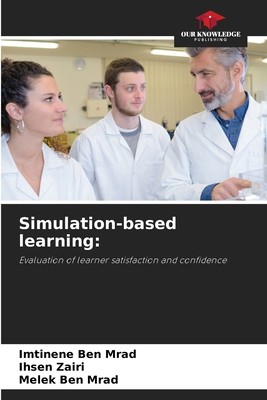
- We will send in 10–14 business days.
- Author: Imtinene Ben Mrad
- Publisher: Our Knowledge Publishing
- ISBN-10: 6204168657
- ISBN-13: 9786204168654
- Format: 15.2 x 22.9 x 0.4 cm, softcover
- Language: English
- SAVE -10% with code: EXTRA
Reviews
Description
The spiral of education in medical training is aimed at the acquisition of professional competence. While theoretical knowledge and technical skills are essential to practice, clinical competence also includes many other attributes, such as interpersonal skills, collection of relevant data from the interview and physical examination, problem-solving skills, and clinical reasoning.Simulation allows for learning in action, reflection and feedback. All of these factors suggest the positive contribution of simulation in optimizing the clinical reasoning process and improving the quality of care.
EXTRA 10 % discount with code: EXTRA
The promotion ends in 12d.14:52:41
The discount code is valid when purchasing from 10 €. Discounts do not stack.
- Author: Imtinene Ben Mrad
- Publisher: Our Knowledge Publishing
- ISBN-10: 6204168657
- ISBN-13: 9786204168654
- Format: 15.2 x 22.9 x 0.4 cm, softcover
- Language: English English
The spiral of education in medical training is aimed at the acquisition of professional competence. While theoretical knowledge and technical skills are essential to practice, clinical competence also includes many other attributes, such as interpersonal skills, collection of relevant data from the interview and physical examination, problem-solving skills, and clinical reasoning.Simulation allows for learning in action, reflection and feedback. All of these factors suggest the positive contribution of simulation in optimizing the clinical reasoning process and improving the quality of care.


Reviews